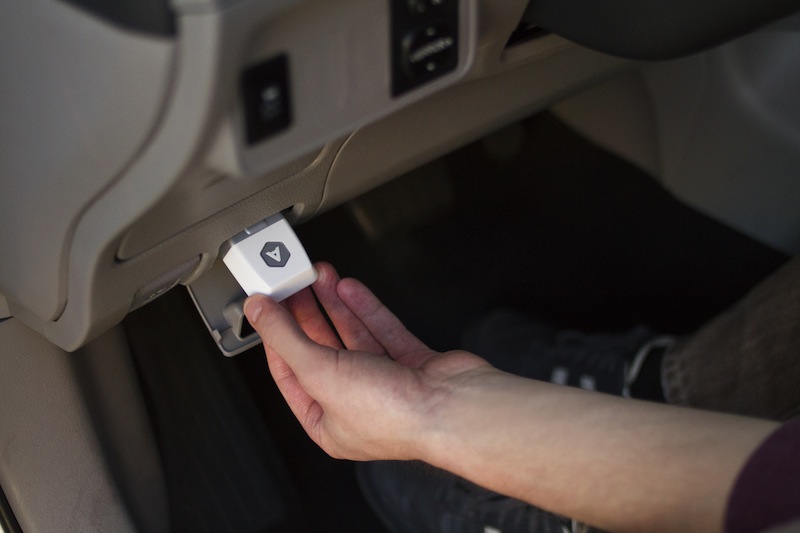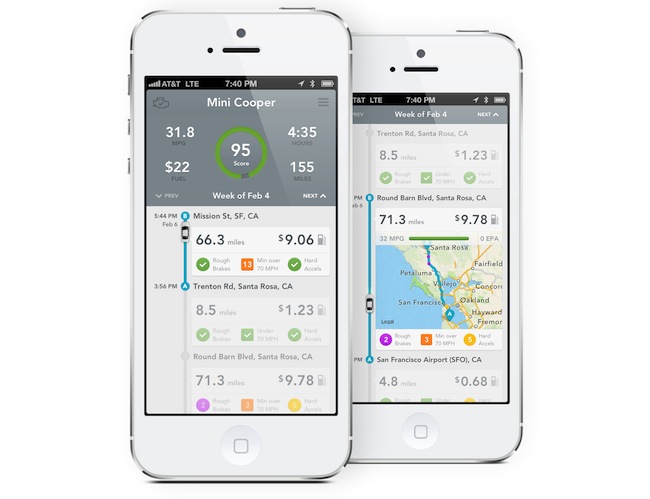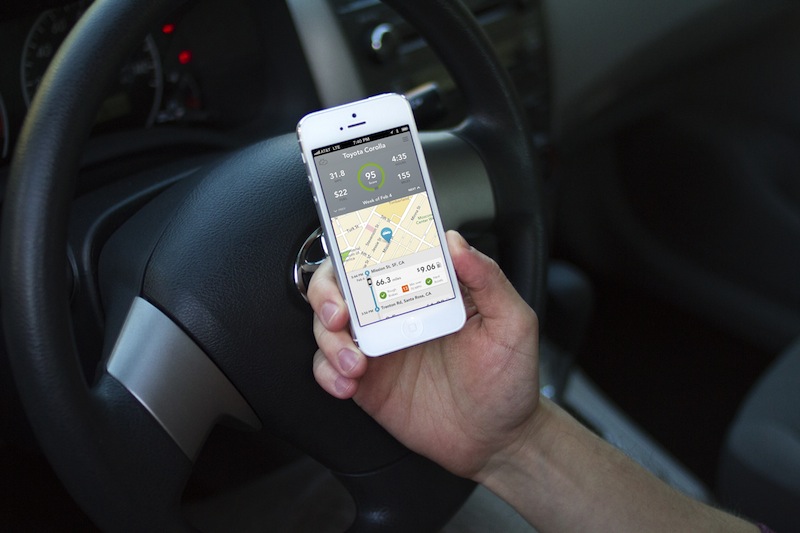Automatic today announced an interesting new dongle which connects to your iPhone and leverages its Bluetooth connection to retrieve some useful data from your car’s onboard computer, adding a dash of Google Maps and gas pricing info so you can plan your trips and track fuel efficiency, but also keep tabs on your vehicle’s critical data, check those engine alerts with actionable recommendations and more.
It connects to your car’s OBD-II Data Link Connector to retrieve fuel, mileage and engine data and beam it to your iPhone via Bluetooth. A companion iPhone app combines this data with your GPS location, current fuel pricing and map data to track your drives, offer assistance for a bunch of issues and even automatically call 911 and your family members in an unfortunate case of a car accident…
As noted by Federico Viticci, the accessory using the OBD-II data link means it will only work with cars produced after 1996. OBD-II requires the data connector to be within 2 feet of the steering wheel or within reach of the driver.
The Verge confirms Automatic has already tested the Link with “200 model/year combinations” for OBD-II and iPhone compatibility. The publication got some hands-on time with the app:
When you stop to fill up, Automatic uses geolocation data to determine which gas station you’re at, then uses its own database of stations and daily prices to calculate how much you paid.
There’s also the accelerometer sensor which picks up sudden brakes and quick starts, letting you later see those events on a map of your trip.
More importantly, if the accelerometer detects a car crash event, it will trigger your phone to alert Automatic HQ servers to call the nearest 911 center with details about your accident.
Optionally, the app can even inform your family members to let them know what’s happened.
The app also offers other features, like a fuel-efficiency score and engine alert codes which allow the software to pinpoint engine problems down to an oil leak, say, which certainly beats the largely uninformative “Check Engine” in-car light alert.
Codes come with actionable responses to each one. For example, you bring up a map of nearby mechanics with a five-star rating pulled from Yelp. For simpler problems that don’t require your immediate attention, you can easily turn off the “Check Engine” light from within the app itself.
There’s clearly a tremendous potential for innovation in this space. Onboard car computers are mostly dumb in that they don’t make full use of the real-time engine data in a proactive manner and Automatic proves this is changing as Silicon Valley startups and tech giants set their sights on the automotive space.
The Link is launching this May for $69.95


